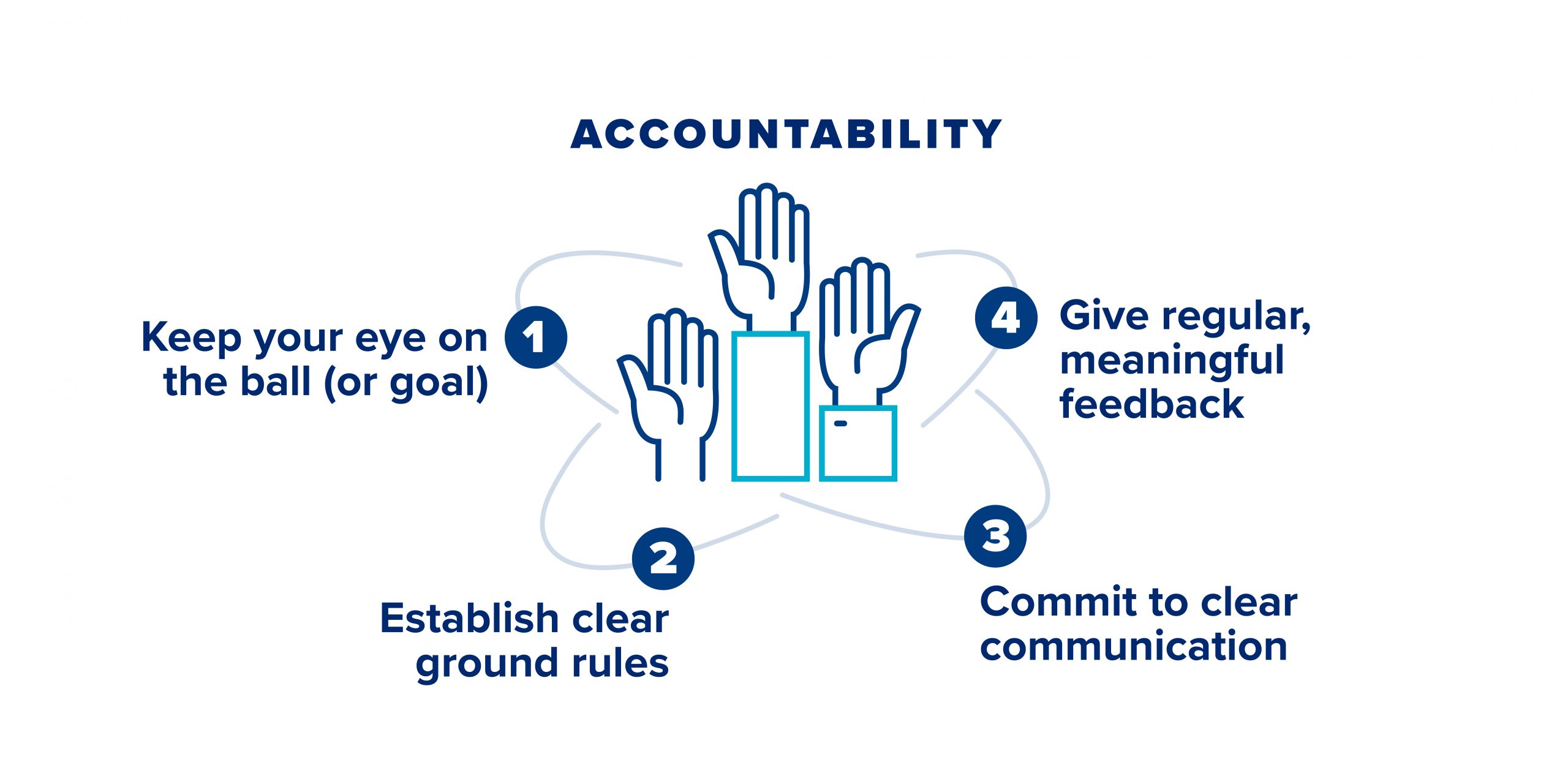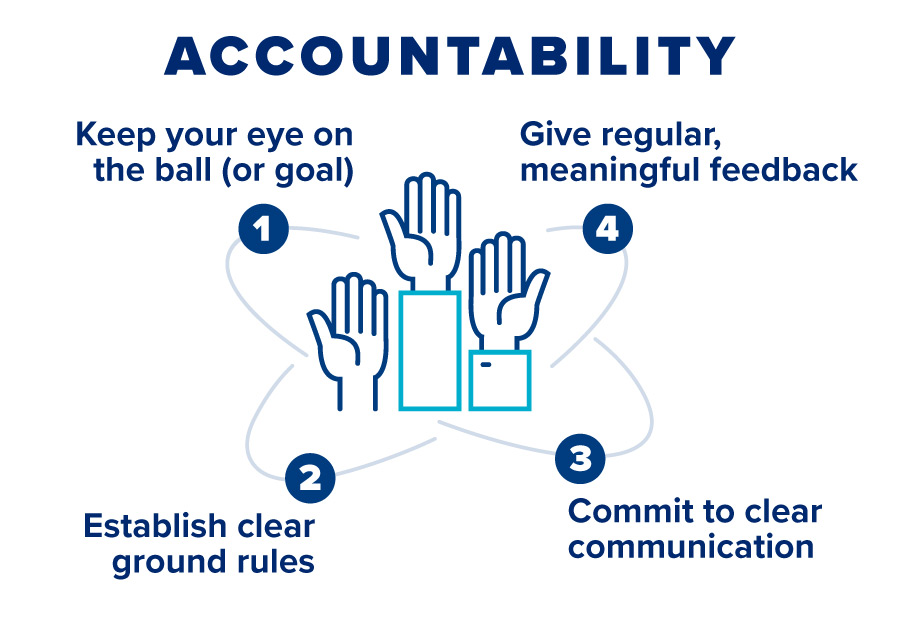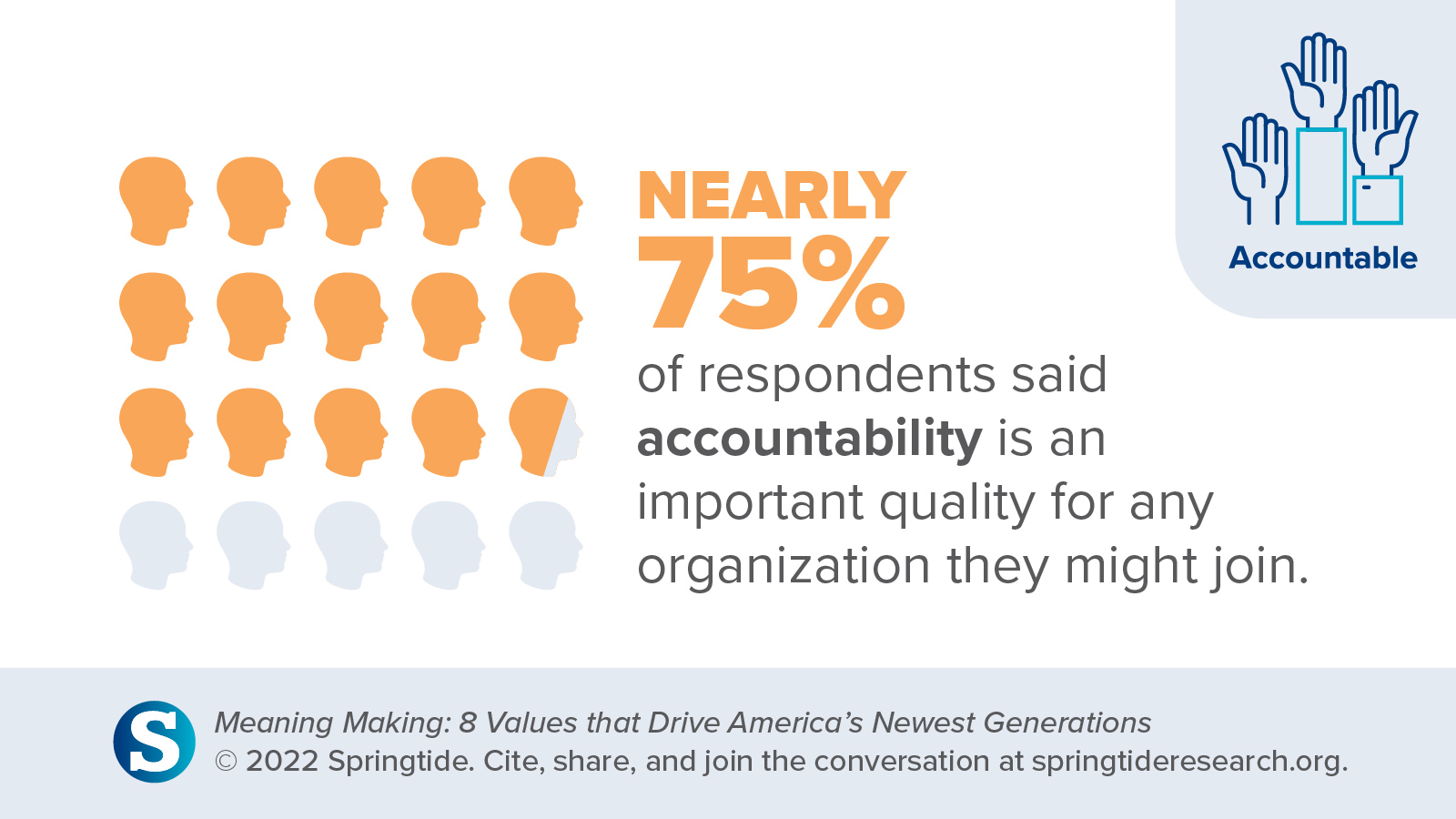
4 Ways to Create a Culture of Accountability That Resonates
Gen Z often gets a bad rap for being flighty, non-committal, etc., yet all young people (regardless of generation) undergo a shift from parental oversight to self-management that can make them seem less than responsible. Springtide’s research on Gen Z shows that accountability matters – both for themselves and for others. It’s one of the chief values Gen Z seeks out when forming relationships with people and places. Nearly 75% of young people we’ve surveyed say accountability is an important quality for any organization they join.
For Gen Z, accountability is tied to organizational trust. Forty-five percent of young people surveyed say that if a leader is not accountable, they can’t trust the organization they lead, and 65 % say that strong leaders own their mistakes and work to make things right. They also believe the same for their own conduct – 66 % of those surveyed believe in taking responsibility for their mistakes and trying to resolve them.
So for organizations hoping to attract Gen Z team members, volunteers, etc., it’s vital to ensure that accountability is a value integrated into the core of how you operate. Here’s 5 ways to create a culture of accountability that will attract and retain Gen Z (and probably everyone else, too):
-
Keep your eye on the ball (or goal).
For an organization (and the people within it) to thrive, there must be a shared goal toward which everyone is working. When leaders or members stray away from that goal, accountability can quickly suffer – because why participate if we’re no longer working toward the goal that we agreed upon? Regularly check in to see if organizational goals align with the goals and purposes of its members. If they don’t, be flexible and willing to change, including dissolving a goal if needed.
-
Establish clear ground rules.
Organizations and groups benefit from clear roles and expectations for all involved. People feel more secure when they understand the rules of engagement, especially when it’s an organization or group that requires transparency or vulnerability of its members. Make a public display of roles and expectations (on a whiteboard, website or intranet, etc.) to serve as a reminder that holds everyone accountable.
-
Give regular, meaningful feedback.
Gen Z needs to have opportunities for feedback to feel they are being offered the two-way accountability they desire. To be able to hold up their end of the bargain, they need to know where strengths and opportunities lie so they can adjust accordingly. Ensure that feedback is actionable, and if needed, assist in strategizing the necessary plan or response.
-
Commit to clear communication.
All of the steps mentioned above are rooted in direct and effective communication. If your group or organization isn’t in place to make some or all of these changes, start by practicing clear communication. Review your communication – is it frequent enough? Are all the groups who should receive information getting it? How is it being delivered? Retooling how you communicate currently can be a powerful first step to ensuring accountability – and one that can deliver immediate results.
Young people want to belong to groups that value accountability, and they want those groups to hold them to the same standards. By offering clear direction, expectations and feedback for all, accountability is rooted into your organization’s structure, and draws in the people who hold those same values.






